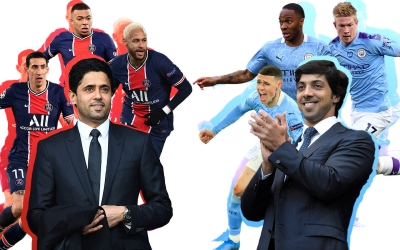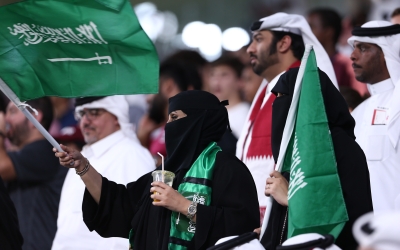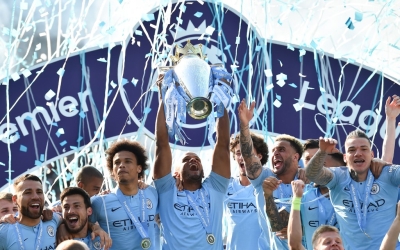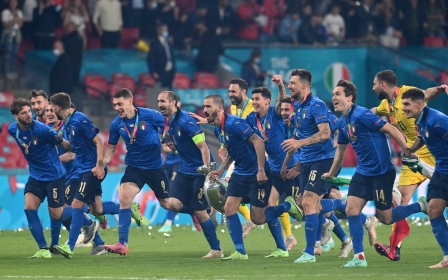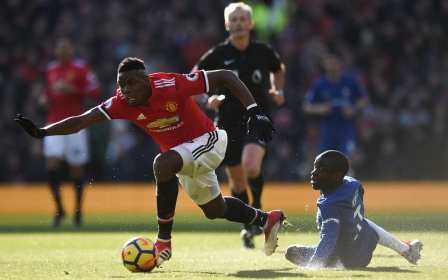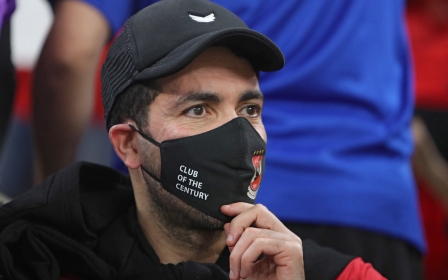Lionel Messi, Qatar and the Gulf's battle for football soft power
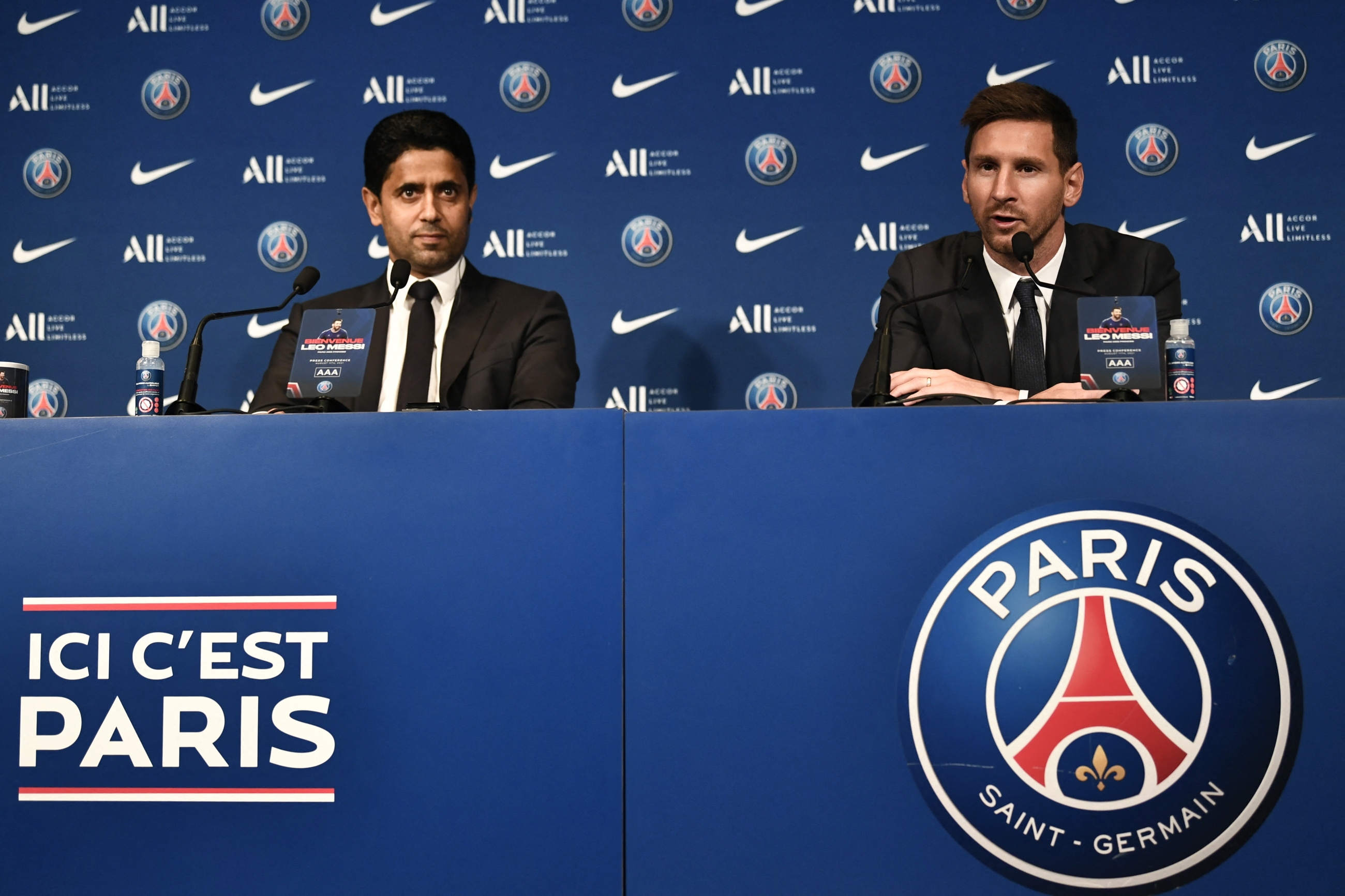
The transfer of Lionel Messi from Barcelona to Paris Saint-Germain, perhaps the highest-profile move in footballing history, was completed this week.
But as the Argentine legend moved north, from Spain to the French capital, another country was taking centre stage: Qatar.
It was an influential member of the Gulf emirate's royal family, Khalifah Bin Hamad al-Thani, who appeared to first confirm the news last week. His tweet - “The deal is officially completed. It will be announced later” - sent social media into a frenzy.
Qatari businessman and PSG President Nasser al-Khelaifi has also been a dominant presence, from the initial transfer negotiations through to Messi's highly-anticipated press conference in Paris on Wednesday.
Khelaifi heads up Qatar Sports Investment (QSI), a subsidiary of the country’s sovereign wealth fund, founded and run by the ruling Al-Thani family, which bought the French club in 2011. It has since pumped in over $1bn, making PSG one of the best teams in Europe.
Doha has clinched the signing of arguably the greatest player of all time, just 16 months before the 2022 World Cup in Qatar - again using football to flex its muscles on the world stage.
Sportswashing and soft power
Qatari investment in football over the past decade - culminating in the Messi deal - has always been about soft power: using the sport to win friends and influence people.
Critics view the efforts as an attempt to launder Doha’s international reputation.
“One man’s sportswashing is another man’s soft power,” Simon Chadwick, professor of Eurasian Sport at Emlyon Business School, told Middle East Eye (MEE).
“Soft power is about the power of attraction, the power of appealing to or engaging with targeted audiences. As opposed to sportswashing, which is widely perceived as being a diversionary tactic.”
As the world’s largest producer of liquefied natural gas, Qatar has found it hard to shake an international reputation for climate irresponsibility. Its human rights record is also much-maligned, particularly regarding freedom of expression, and the rights of migrant workers and the LGBTQ+ community.
Football is a way to change that.
“What people don’t talk about is Qatar oil, gas, and the environment. Instead, what we’re doing is we’re talking about Messi,” said Chadwick.
“We’re not talking about immigrant construction workers, we’re talking about Messi.”
Messi: face of World Cup 2022
The plight of migrant labourers, in particular, has been a matter of grave concern for international onlookers after the Guardian revealed in February that over 6,500 had died in Qatar since it won the right to host the World Cup a decade ago.
The news prompted several national football teams, including Norway, Germany, and the Netherlands, to wear T-shirts during World Cup qualifying matches in March in protest over the Gulf state's human rights abuses.
Messi is likely to now become a key asset in Qatar’s attempts to create positive PR around the tournament.
Earlier this week, The Athletic reported that the Qataris intended to use the Argentine’s image to maximise commercial opportunities at next year’s World Cup, which is likely to be the then 35-year-old’s last major international tournament.
Guiding PSG to its first-ever victory in the Champions League - the showpiece European club football tournament - with Messi at the helm; then hosting a successful World Cup months later is the ultimate goal.
“Given the popularity and impact of Messi, his image will certainly be associated with Qatar and the World Cup, whether that’s with the Emir of Qatar, or across the various sites of the tournament,” Kevin Veyssiere, the Paris-based founder of the blog Football Club Geopolitics, told MEE.
PSG, its players, and various Qatari business partners will be called upon to “sell” the tournament, he adds, providing support to a country not normally associated with footballing culture.
Messi’s relationship with Qatar could even outlive his stint in Paris.
“It really wouldn't surprise me that ultimately Messi becomes some kind of ambassador for Qatar, and it's not inconceivable that when we see his contract finish at PSG, that we’ll see him go and play in Qatar,” predicts Chadwick.
'Statement' against Saudi and UAE
For Doha, bringing Messi - who has been named the winner of the Ballon d'Or (football's most prestigious individual award) on six occasions - to its state-run European football project is a significant coup against its regional rivals.
In June 2017, Saudi Arabia and the UAE severed diplomatic, trade, and travel ties with Qatar over claims that it supported terrorism - a charge it has long denied. The three-and-a-half-year blockade ended in January.
Just months into the crisis, PSG signed Brazilian star Neymar for a record-breaking 222 million euros. Many viewed it as a bold financial and political statement as Doha's neighbours attempted to isolate it.
“Neymar’s transfer didn’t just break the world transfer record, it obliterated it - it more than doubled the existing top transfer fee,” said Chadwick.
“He was signed to make a point, particularly to Saudi Arabia and the UAE.”
The Gulf rivalry has spilled over elsewhere in the football world.
Qatari state broadcaster BeIN sports is seeking $1bn in damages against Saudi Arabia, after a Riyadh-based satellite operator began illegally simulcasting its live events, in what is believed to be the biggest case of sports piracy ever.
The Saudis have themselves been accused of using “sportswashing” to launder their reputation. Earlier this year they even attempted to acquire the services of Lionel Messi to help them do so.
Meanwhile, the UAE has competed for football supremacy through their ownership of English Premier League champions Manchester City. They tried to sign Messi last season, in a deal reported to be worth a staggering 500 million euros.
The Qataris and Emiratis took different approaches to the future of European football in April, when attempts to create a breakaway “Super League” outraged fans. The failed attempt was rejected by PSG from the outset, earning it plaudits from governing body Uefa.
Following fallout from the abortive Super League, Khelaifi seized the opportunity to become the chairman of the European Club Association (ECA), the only Uefa-recognised body representing clubs in Europe.
He already sits on Uefa’s executive committee - it is no wonder he was last year named the most influential person in football.
Qatari "petro-dollars" under scrutiny
Not everyone is impressed with PSG’s acquisition of Messi: his reported 29m euros annual salary has led some to accuse “Qatari petro-dollars” of ruining football.
Calls are growing louder to introduce salary caps and reform football's finances. Khelaifi insists PSG’s activities are within the rules.
“We know the rules of Financial Fair Play (FFP) and we will always follow the regulations,” he said during Wednesday’s press conference unveiling Messi.
Uefa’s FFP regulators investigated PSG after the signings of Neymar and Kylian Mbappe in 2017.
But the regulations have been relaxed since the Covid-19 pandemic, just as Khelaifi has risen the ranks of the sport’s hierarchy.
“The election of Khelaifi at the head of the ECA only reinforced the weight of PSG in the bodies of European football, even though a few years ago PSG and Qatar were singled out for their funding,” Veyssiere said.
“The Super League crisis has changed the balance of power, to the advantage of PSG.”
European governments have only themselves to blame for the dominance of football clubs owned by oligarchs and nation-states, according to Chadwick.
“The French did nothing to stop Qatar from buying PSG, in fact, if anything, the French government enabled it,” he said.
“In England, we’ve seen the British government has done nothing to stop Abu Dhabi buying Manchester City [and] nothing to stop Roman Abramovich buying Chelsea.”
“The situation is not going to change any time soon and, if anything, as globalisation of football intensifies… we could well see Qatar or Abu Dhabi and other nations or states continuing to invest more money into European football.”
This article is available in French on Middle East Eye French edition.
Middle East Eye propose une couverture et une analyse indépendantes et incomparables du Moyen-Orient, de l’Afrique du Nord et d’autres régions du monde. Pour en savoir plus sur la reprise de ce contenu et les frais qui s’appliquent, veuillez remplir ce formulaire [en anglais]. Pour en savoir plus sur MEE, cliquez ici [en anglais].


